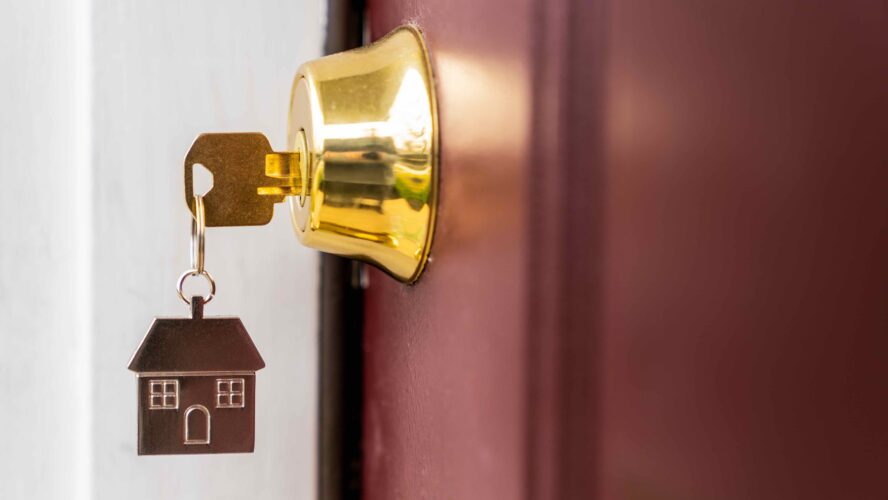
Disclaimer: This content was true at the time of writing, but some information may have changed.
1. Contact your energy supplier
If you’re struggling to pay your energy bills (because of the energy price cap increase or otherwise), it’s important that you contact your energy supplier as soon as you can. Ofgem is responsible for protecting vulnerable consumers and making sure suppliers support you in any way they can, which means there are some rules in place to help you that energy suppliers must follow.
Under these rules you can ask your supplier about options such as: changing your payment plan so it’s more affordable, giving you more time to pay, offering access to hardship funds or grants and offering advice on how to use less energy.
If you cannot reach a solution with your energy supplier, there are some organisations that may be able to help. If you’re in England or Wales, head to Citizens Advice. If you’re in a vulnerable situation, their Extra Help Unit could support you to make a complaint. If you’re in Scotland, check out Citizens Advice Scotland and Energy Advice Scotland.
2. Access a grant to pay your energy debts
If you’re in debt to your energy supplier, you may be able to access a grant to pay this off. You can find out what grants are available through Citizens Advice (England/Wales), Charis (UK-wide) or Home Heating Advice (Scotland).
3. Join the Priority Services Register
The Priority Services Register is a free service that energy suppliers and network operators offer, to help support people in vulnerable situations.
If you have reached state pension age, have a long-term medical condition or disability, are recovering from an injury, have a hearing or sight condition, have a mental health condition, are pregnant or have young children, or have extra communication needs (such as not speaking or reading English well), you are eligible to join the the Priority Services Register. You may also be able to join for other reasons, such as if you need short-term support after being in hospital.
You can join the Priority Services Register by getting in touch with your energy supplier(s) and telling them as much as you can about your current needs. If you rely on energy supply for your medical needs, they’ll pass this information on to your network operator too, to make sure you’re the first to know about any planned power cuts, and are prioritised to receive support in an emergency.
Joining the Priority Services Register also means you’ll benefit from being able to: nominate someone else to receive bills and communications from your supplier, get help with prepayment meter access (e.g. moving it to somewhere you can safely access it), get regular meter readings, receive accessible communications (like large print or braille) and access other support services.
4. Check if you’re eligible for any benefits
Depending on your situation, you may be entitled to benefits. Use our benefits calculator to see if you could claim any benefits that you’re not currently.
You can find more about what personal and financial details you’ll need to have ready to be able to calculate your benefit entitlement on the GOV.UK website.
5. Check if you’re eligible for any extra help or discounts
Applying for Pension Credit may entitle you to more financial support, giving you extra money towards your energy bills. With one in three people entitled to Pension Credit who are not currently claiming it, we recommend using the Pension Credit calculator to see if you qualify.
If you qualify for Pension Credit, you may also be entitled to:
- Housing Benefit if you rent the property you live in
- Winter Fuel Payment
- Support for Mortgage Interest if you own the property you live in
- A Council Tax discount
- A free TV licence if you’re aged 75 or over
- Help with NHS dental treatment, glasses and transport costs for hospital appointments, if you get a certain type of Pension Credit
- Help with your heating costs through the Warm Home Discount Scheme
- A discount on the Royal Mail redirection service if you’re moving house
You may also be eligible for:
The Cold Weather Payment is extra financial support provided by the UK Government to people in receipt of certain benefits to help cover the additional costs of energy bills during very cold weather.
The Winter Fuel Payment, also called the heating allowance, is a tax-free payment towards the cost of heating bills.
The Warm Home Discount is a one off discount on your electricity bill. It’s intended to help people living on a low income or on a pension with the cost of energy bills during the winter.
6. Get emergency credit (prepayment meters only)
If you use a prepayment meter and can’t afford to top it up, you can normally activate a small amount (usually £10) of ‘emergency credit’ either directly through your meter or by contacting your energy supplier.
You may be charged a fee for this, so it’s usually best to contact your energy supplier directly if you cannot afford to top up your prepayment meter. They may also be able to offer you support such as an adjusted payment plan.
You can read more information from Citizens Advice on what to do if you can’t afford to top up your prepayment meter.
7. Get free debt help
If you’re struggling with debt, please don’t ignore it. Our CAP Debt Help service is totally free of charge and is available across Scotland, England, Wales and Northern Ireland. Get started on your debt free journey today.
You can also explore other free debt help options available, through organisations such as StepChange, National Debtline or PayPlan.
Further support and advice
For further support and advice, head to:
Answering your questions
If you haven’t paid a bill after 28 days, there may be a possibility that you could be cut off from your energy supply, but this is often a last resort; energy suppliers must offer alternative solutions first, such as payment plans or a prepayment meter. Vulnerable customers, such as those who are elderly, have disabilities, or live with young children, are often protected from disconnection. It’s important to communicate with your supplier early if you’re struggling to pay. Find more information at Citizens Advice.
Yes, you may be able to get help from your energy supplier if you’re struggling to pay your energy bills. Ofgem ensures there are rules so vulnerable people are supported. If you’re struggling financially, are in a vulnerable situation or just need extra help, your energy company should have procedures in place to support you. Find out how to contact your energy company here.
If you think that your energy bill is too high, first check whether your bill is based on estimated readings or actual meter readings. Submit up-to-date meter readings each month to make sure your bills are accurate.
If the readings are correct, think about whether you’ve been using more energy due to weather changes or household activity. You might consider switching energy suppliers for a better tariff, or learn some energy saving tips to save cash each month. (link to new blog once live)
A smart meter won’t automatically save costs, but it can help you keep track of how much energy you’re using. Smart meters also send your energy supplier automatic readings, helping your bills to be more accurate and avoiding unexpected charges.



